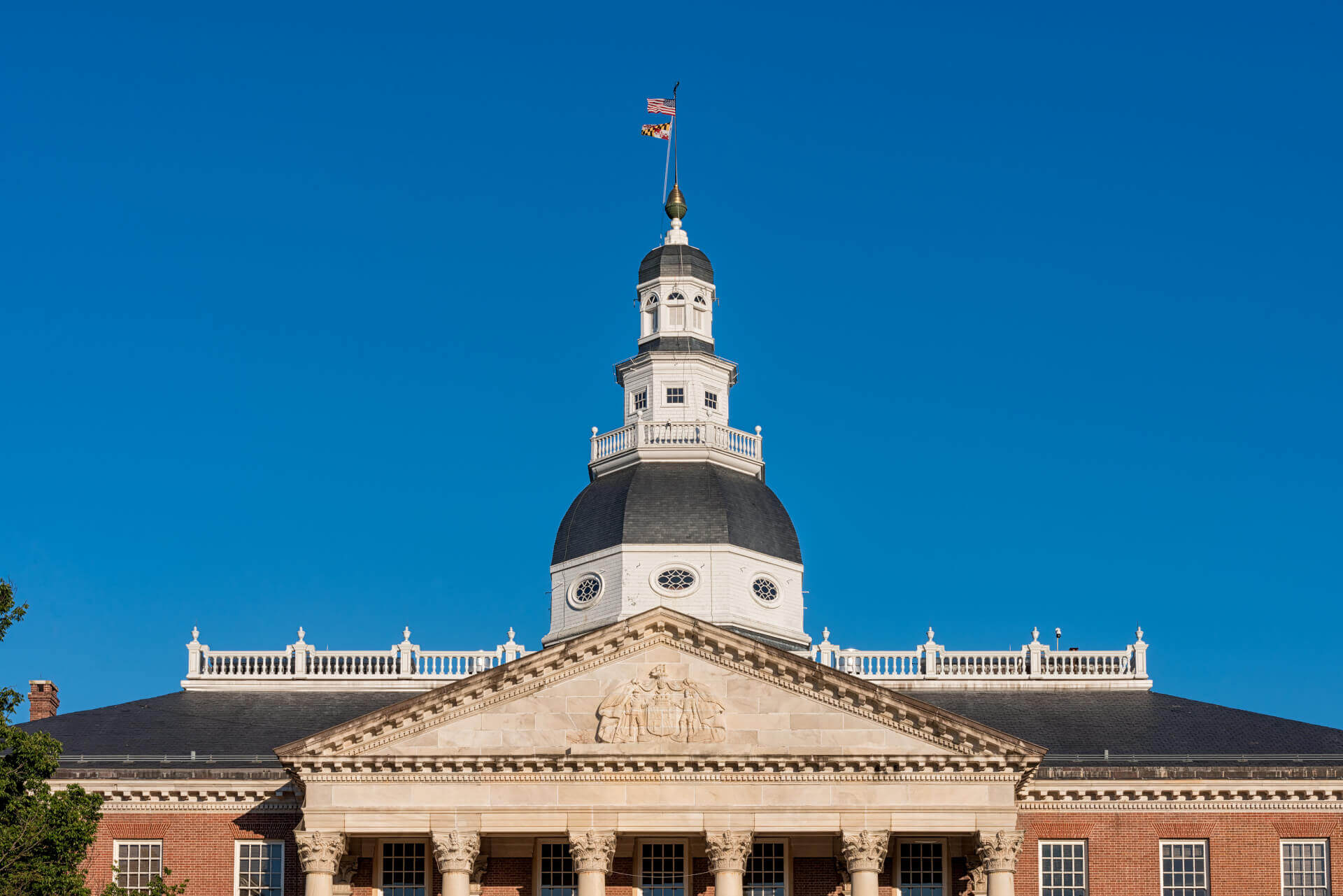Nominees to Education Reform Oversight Panel Named

A nominating committee announced nine nominees to an accountability board tasked with ensuring the success of the Blueprint for Maryland’s Future education reforms on Wednesday, but one lawmaker contends that they do not fully represent the state of Maryland.
“We had an ambitious and significant task to assemble, organize, develop and open an application process, review and vet candidates, and ultimately decide the slate,” said Shanaysha Sauls, the nominating committee’s chair.
The Accountability and Implementation Board (AIB) was established through the Blueprint for Maryland’s Future, a multi-billion-dollar education reform plan intended to close student achievement gaps and transform the state’s education system over the next decade.
Gov. Lawrence J. Hogan Jr. (R) will have until Oct. 1., to appoint seven of the nine candidates, who are also subject to Senate confirmation. The governor, Senate president and House speaker will jointly appoint a chair of the panel.
The primary responsibility of the seven-member Accountability and Implementation Board is oversight of state and local entities as they implement Blueprint policies — which include expanding pre-kindergarten programs, increasing funding for schools with higher concentrations of poverty, boosting pay and career opportunities for teachers and providing more individualized instruction. For the next decade, the AIB will evaluate the results of Blueprint reforms against their intended outcomes.
Each of the nine nominees were unanimously selected, Sauls said. They are:
- Mara Doss, the associate vice president for teaching, learning and student success at Prince George’s Community College.
- Fagan Harris, chief executive officer of Baltimore Corps, a nonprofit that recruits talented professionals and connects them to leadership opportunities.
- William “Brit” Kirwan, the chair of the Commission on Innovation and Excellence in Education, whose policy recommendations make up the foundation of the Blueprint for Maryland’s Future.
- Isiah “Ike” Leggett, former Montgomery County executive and currently a member of the University System of Maryland Board of Regents.
- Jennifer Lynch, the director of educational partnerships for Baltimore County Executive John A. Olszewski Jr. (D) and previously an elementary school principal in Baltimore City Public Schools for five years.
- Joseph Manko, the education program officer for the Abell Foundation and previously an elementary school principal in Baltimore City Public Schools for ten years.
- Harry Preston V, a Baltimore City Public Schools teacher for the last 16 years.
- Laura Stapleton, the interim dean of the University of Maryland, College Park College of Education and a professor in human development and quantitative methodology.
- Joshua Starr, the chief executive officer of Phi Delta Kappa International, a nonprofit membership organization for K-12 educators, and previously the superintendent of Montgomery County Schools from 2011 to 2015
The nominating committee spent the last month reviewing a total of 43 applicants for the AIB, the majority of whom were from Montgomery County and Baltimore. More than half of the applicants were male or white and the remaining identified as Black, Asian, Hispanic and Afro-Latino, according to Rachel Hise, a policy analyst from the Department of Legislative Services.
But one lawmaker had reservations about the lack of geographical diversity among the nominees. Four reside in Montgomery County, three in the City of Baltimore, one in Baltimore County and one in Anne Arundel County.
“We are disappointed with the list of nominees that was released today by the Accountability and Implementation Board Nominating Committee. None of the applicants who were selected are residents of Prince George’s County, our State’s second largest school district, and home to over 130,000 students in need of the resources and direct services provided by the Blueprint for Maryland’s Future,” said Del. Alonzo T. Washington (D-Prince George’s), the chair of the Education Subcommittee of the House Ways and Means Committee.
“It is unfortunate that no one on the nominating committee advocated on behalf of Prince George’s County to ensure we have a seat at the table on the AIB,” he continued.
Cheryl Bost, president of the Maryland State Education Association, recognized that the nominees are predominantly from Montgomery County and Baltimore, but said she was “very confident that all seven that are eventually chosen will represent the entire state.”
“The success of any one district is important to the success of all districts,” she continued.
Sen. Paul G. Pinsky (D-Prince George’s), the vice chair of the nomination committee and chair of the Senate Education, Health and Environmental Affairs Committee, highlighted the candidates’ range of experiences, which include working with local school systems, community colleges, state universities, the nonprofit sector and county governments.
“We want to have multiple voices around the table with multiple experiences. We think that having a group … who have both policy experience and implementation experience will give a lot of life to this group,” Pinsky said. “They have a great task, but we think they have a multitude of experiences that actually as a collective body will be very refreshing and I think rewarding to the state of Maryland.”
Education advocates encouraged Hogan to act on the nominations quickly, as the implementation of the Blueprint cannot meaningfully begin until the AIB is formed.
“Frankly, we hope the Governor acts with urgency here; the Blueprint has been in its implementation phase for months without the state-level guidance and accountability structures to be offered by the AIB,” Shamoyia Gardiner, the executive director of Strong Schools Maryland, a grassroots organization that supports the Blueprint, said in a statement.
“Local school systems and all government entities responsible for implementing the Blueprint are counting on a focused, functioning AIB to get to work immediately,” she continued.
Senate President Bill Ferguson (D-Baltimore City) said in a statement that he is looking “forward to an expedient decision on the nominees by Governor Hogan as the AIB begins providing much-needed support to our local school systems.”
By Feb. 15, 2022 the AIB must develop a comprehensive implementation plan, according to the Blueprint legislation. And local school systems must submit their local implementation plans to the AIB by June 15, 2022.
The AIB is an independent unit of state government, which means that it has authority over various state agencies including the Maryland State Department of Education and the State Board of Education, if they come into conflict.
The AIB also has the power to withhold state funds from any school district if the school district does not comply with the Blueprint.
Pinsky stressed that accountability has always been a critical part of the implementation of the Blueprint.
“It’s hard to implement if you don’t have an oversight board, and that was front and center in all of our efforts from the Kirwan Commission to the legislature passing the law,” Pinsky said. “Moving this list to the governor … underlines that effort that the legislature believed in accountability, wanted to ensure that accountability, and now we can actually put that into place.”





 Creative Commons Attribution
Creative Commons Attribution